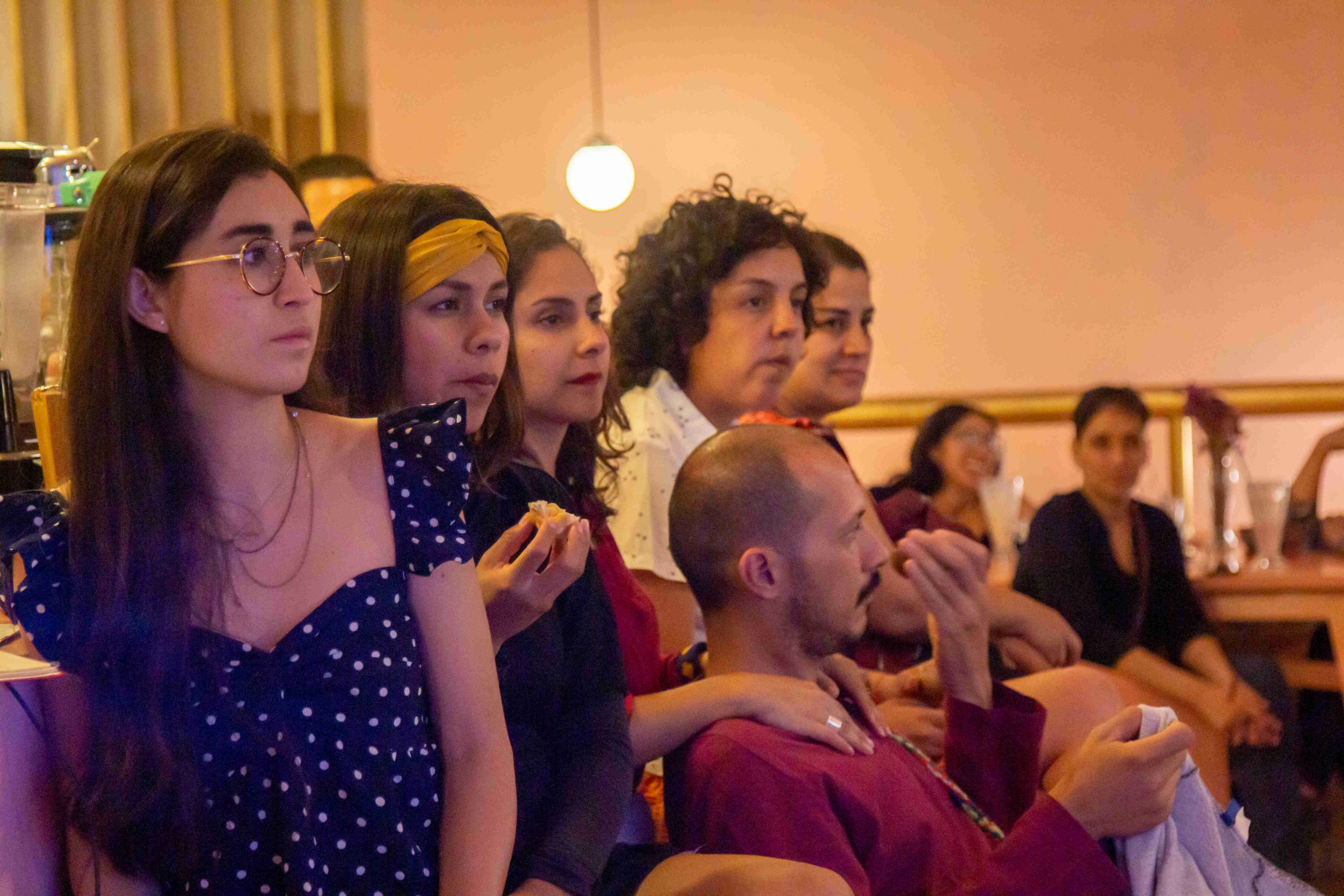On Saturday 7th March 2020, the tenth Open Data Day took place with people around the world organising over 300 events to celebrate, promote and spread the use of open data. Thanks to generous support from key funders, the Open Knowledge Foundation was able to support the running of more than 60 of these events via our mini-grants scheme.
This blogpost is a report by Enriqueta Rincón from Ligalab in Mexico who received funding from ILDA to open a space for local speakers to present their open data projects and for the community to gather and engage with local issues towards equal development.
We had a great time during our last Datos & Pox celebrating Open Data Day. Around 50 attendees joined us on March 7th 2020 in Tuxtla Gutiérrez, Chiapas, Mexico. Among the attendees, we had students, local NGOs, and families, everyone sharing interest in local projects towards sustainable development.
As people started to arrive, they got involved in some low-tech data visualisations that were placed in the entrance of the hall. Three paper canvas asked them to share their insights on local issues, personal and organisational work resources, and their progress towards Sustainable Development Goals.
We started the evening with an icebreaker bingo about local and personal topics, giving the chance for the community to interact and know each other. Then the data talks started with each speaker given seven minutes to present their work and a chance to answer two questions each.
- Araceli Lopez, cofounder of the NGO Jovenarte shared with us their projects towards sustainable livelihoods, food security and agriculture in tzotzil and tzeltal indigenous rural households in Chiapas. Follow Jovenarte’s projects at facebook.com/jovenarteac/
- Graciela Osorno, teacher in the community school ‘Comunidad de Aprendizaje para la Sustentabilidad Moxviquil’ talked about their research “Weaving new strategies focused on: Migration-Education-Development, in the Mexico-Guatemala cross-border context”. Follow Moxviquil’s projects at facebook.com/CECAMoxviquil/
- Bruno Hernández spoke about the financial gap to sustain ecological conservation projects supported by the NGO ‘Fondo de Conservación El Triunfo’. Follow FONCET’s projects at facebook.com/FondoElTriunfo/
- Selene Lopez, from the feminist collective ‘Laboratorio Femme’ and Lumex, described the concept of cyclic architecture, featuring the technology and innovations used in adobe structures for households. Follow Lumex’s projects at facebook.com/lumex.mx and Laboratorio Femme’s projects at facebook.com/laboratoriofemme
- Gabriella Rosato from the NGO “Banco de Alimentos de Tuxtla Gutiérrez”, talked about their mission to provide food security to people around the city area and show us the panorama of local food distribution. Follow Banco de Alimentos Tuxtla at facebook.com/bancodealimentostuxtla
- Alma Narvaez, a training coordinator in the Mexico’s Chapter of the Global Youth Network for Biodiversity, spoke about their platform to engage youth participation in the decision-making process in the United Nations Convention on Biological Diversity. Follow GYBN México’s projects at facebook.com/GYBNMexico
- And last but not least, Gina Vega presented her new project “Ámate” a textile-fashion initiative developed while in prison, with the mission to empower and provide financial security to women in prison, and to promote and enforce non-discriminatory working rights. Follow Ámate at facebook.com/nucu.mx
The evening finished with an online live quiz with questions about the data presented by the speakers. The winner, and all the speakers, went home with a terracotta piece made by the hands of our local favourite artisan Carito Moroqui.
We started these gatherings a year ago and now we have grown into a network of local people working around open data for development. As an NGO, our mission in Ligalab is to build a stronger citizenship who participates and influences government actions. Come check us out at facebook.com/LigalabMx
We are deeply grateful to Open Knowledge Foundation to support this project. The goal of Datos & Pox is to make local data open and reachable for the community, in order for civil society to know more about local issues, for NGOs to create open data-driven projects, and for government to base on open data to develop their public policies and gain trust in local investigations.









